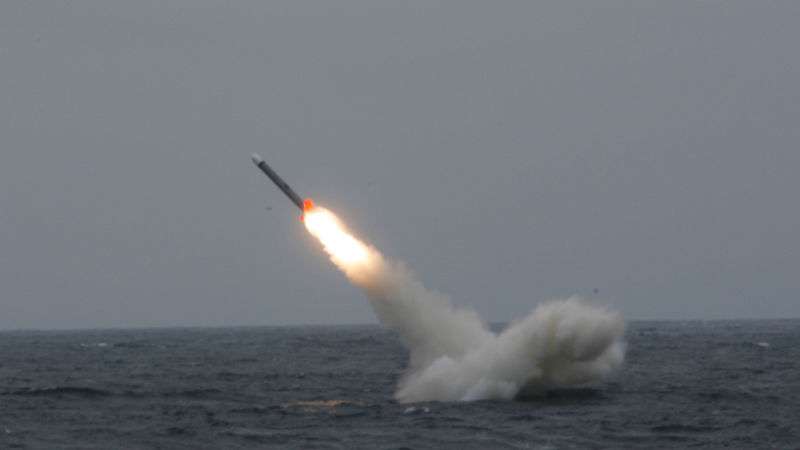The Volokh Conspiracy
Mostly law professors | Sometimes contrarian | Often libertarian | Always independent
Trump's Syria Withdrawal Does Nothing to Restore Constitutional Limits on Presidential War Powers
While the Syria intervention lacked proper congressional authorization, constitutional considerations had nothing to do with Trump's withdrawal decision. Indeed, his administration has doubled down on Obama-era arguments asserting broad presidential authority to initiate military interventions.

Donald Trump's recent decision to withdraw US forces from Syria has drawn praise in some quarters - including Reason's Robby Soave - for supposedly helping to restore "the rule of law." Such praise is undeserved. Trump's decision does little, if anything, to curb presidential power to initiate war without congressional authorization. Far from respecting constitutional limits on presidential warmaking, the administration has in fact doubled down on Obama-era arguments justifying broad presidential power to initiate new conflicts.
Under both Obama (e.g. here and here) and Trump, I was among those who argued that the US war against ISIS in Syria and Iraq is unconstitutional, because President Obama initiated it without the required congressional authorization, and neither he nor Trump ever got such authorization even retrospectively, during what has now been over four years of fighting. The various legal rationales that the Obama administration put forward to justify the war range from the bad to the laughable, and all would set dangerous precedents if they become generally accepted. The same goes for outside experts' efforts to prove that the war is legal, such as those of controversial legal scholar and former George W. Bush administration official John Yoo.
If Trump had acknowledged that the war is illegal and justified his decision to withdraw on that basis, he might have struck a useful blow for constitutional limits on executive power. But there is zero evidence that constitutional considerations played any role in his decision, or that this administration has any desire to shore up Congress' position as the only branch of government with the power to to authorize the initiation of war.
To the contrary, the Trump administration has gone out of its way to emphasize that they believe the president has broad power to initiate a wide range of conflicts. In April 2018, Trump's Office of Legal Counsel put out a memo defending exactly that view. As Harvard law professor Jack Goldsmith (a former Bush administration OLC head, and leading war powers expert) puts it, the memo builds on "Obama-era legal opinions" and "articulate[s] an extraordinarily broad conception of the president's authority to use military force abroad through air strikes without congressional authorization." Goldsmith also writes (correctly, in my view) that the Trump OLC opinion is "in no way surprising" - at least not to anyone familiar with the Obama administration's positions on this issue. But it should give pause to anyone who thinks Trump is somehow intent on reining in presidential war powers.
The administration's very broad interpretation of presidential power is also evident in Trump's notorious statements threatening to initiate wars with North Korea and Iran, neither of which includes even the slightest suggestion that congressional authorization might be necessary. No such recognition was evident in any follow-up statements by Trump and other administration officials, either. Finally, it's worth noting that Trump has continued the Obama-initiated intervention in Iraq and Syria for over two years (and still counting), without making any meaningful effort to secure congressional authorization for it. Indeed, he has made even less effort to get it than Obama did.
In sum, everything the administration has said and done on the subject of war powers is consistent with the view that the president has the right to start a wide range of conflicts without congressional authorization. He can also, if he wants, end them (as Trump now hopes to do with the intervention in Syria). But it's all up to him.
In this respect, Trump is continuing Obama's troubling legacy (and to some extent that of previous presidents), rather than making major innovations of his own. But we should not fool ourselves into thinking that he's making the situation any better.
The constitutional requirement that Congress must authorize the initation of war is more than just a technical legal formality. It helps ensure that no one man has the authority to take the nation to war, and increases the likelihood that any wars we do initiate will be backed by a broad political consensus, which in turn helps increase the odds of a successful outcome. The Founders wanted to deny the president the power to start wars on his own, and their reasons for doing so are, if anything, even more valid under modern conditions than they were in the eighteenth century.
If we are going to restore congressional control over war initiation, Congress itself needs to act. I suggested some possible ways to do so here, and Yale Law School Prof. Bruce Ackerman has outlined some others.
In the meantime, those who support withdrawing from Syria on policy grounds may have reason to cheer. For the reasons summarized by David French (who also recognizes the conflict is unconstitutional) here and here, I think withdrawing at this time is likely a mistake, and may well create a situation where a larger intervention will be needed in the future. Like French, I think it would have been better to secure congressional authorization for continued, but limited intervention. But whether or not Trump's Syria withdrawal is strategically wise, it does nothing to bolster constitutional limitations on presidential war powers. To the contrary, Trump and his administration have made their disrespect for such constraints abundantly clear.


Show Comments (194)